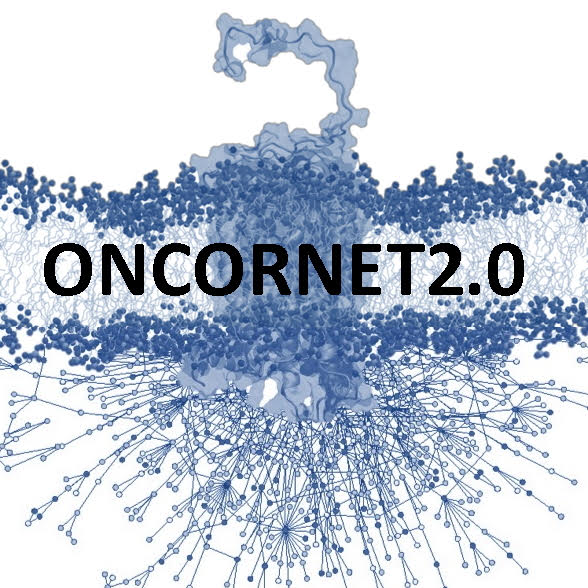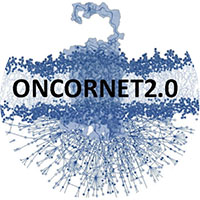CNRS


Lab webpage: http://www.igf.cnrs.fr/index.php/fr/
General description
The host laboratory, the Institute of Functional Genomics (IGF) of Montpellier, is a multi-disciplinary research centre that develops innovative strategies and methods, ranging from molecular and structural studies to physiological and behavioural approaches, to explore the mechanisms involved in cell communication in various fields, including neurobiology, endocrinology, cardiology and cancer. The main goal of the research programs developed at IGF is to contribute to the understanding of the biological mechanisms underlying pathologies and to promote biomedical applications and the emergence of new therapies. The IGF is renown worldwide for his previous achievements in the field of GPCRs, especially glutamate and serotonin receptors. This peculiar expertise has recently been extended to chemokine receptors in frame of the previous Innovative Training Network ONCORNET.
Key research facilities, infrastructures and equipment
The IGF is an institute offering all facilities to conduct research in the field of life science. These include facilities for structural biology, pharmacology, biochemistry, physiological and behavioural studies as well as animal facilities (drosophila, zebrafish, mice and rats). The IGF also hosts and manages technical platforms that are open to the scientific community of Montpellier. These include platforms dedicated to virus production, genomics and imaging in living animals. Most importantly for the project of the consortium, platforms hosted at IGF also include proteomics (Functional Proteomics Platform – scientific manager: P Marin) and pharmacological screening and interactomics (Arpege platform) platforms. All the IGF teams have full access to these platforms as well as to the platform of structural biology (PIBBS) located at the Centre for Structural Biology, located in the same campus. These platforms organize every year training courses dedicated to users, thus offering a unique opportunity for training and transfer of knowledge to recruited Early-Stage Researchers.
Project members
Dr. Philippe Marin completed his Ph.D. in Neuropharmacology in 1992 at the University Pierre et Marie Curie (Paris). He got a CNRS permanent position in 1993 to study the mechanisms controlling protein translation in neurons and their role in neurotoxicity at the Laboratory of Neuropharmacology located in Collège de France (Paris). He joined the IGF in 1999 where he implemented a team (15 people) that investigates the signalling mechanisms under the control of various GPCRs involved in brain disorders using various proteomic strategies in combination with biochemical, cell biology, electrophysiological and behavioural studies. He pioneered interactomics studies to characterize protein networks interacting with several GPCRs. He is the scientific manager of the proteomics platform of IGF, that is equipped with state-of-the-art mass spectrometry facilities and conducts more than 50 proteomics projects per year in collaboration with numerous local research teams, mainly in the fields of neurobiology and oncology. He is the author of 110 publications and four patents.

Dr. Séverine Chaumont-Dubel completed her Ph.D. in Molecular and Cellular Biology in 2004 at the University of Montpellier. The same year, she joined the Laboratory of Molecular Biology in Cambridge as a postdoctoral fellow. She then moved to the University of California, Los Angeles in 2006 before obtaining a CNRS post-doctoral contract in Bordeaux in 2007. She got a permanent assistant professor position at the University of Montpellier in 2009. She is now studying the role of a serotonin receptor and its protein partners in neurodevelopment, using proteomics strategies, as well as biochemistry, cell biology approaches and behavioural studies. She is a member of the Functional Proteomics Platform of IGF, where she conducts several scientific projects. She is teaching biochemistry, proteomics, biotechnologies and neurosciences at the University of Montpellier (200h/year) and is responsible for the organization of a Neurosciences course entitled “From molecules to cells”, focusing on signalling pathways in neurosciences. She is the author of 24 publications.

Dr. Thierry Durroux completed his Ph.D. in Molecular Biology in 1991 at the University of Montpellier (France) and at the University of Sherbrooke (Canada). He got a permanent position at CNRS in 1992. He was trained in electrophysiology and focused his research on calcium channels in the glomerulosa cells of the adrenal gland. He then joined the Department of Molecular Pharmacology of the IGF and focused on vasopressin and oxytocin receptors. He got interest in the pharmacological properties of these receptors and more precisely on the impact of receptor oligomerization on their binding and coupling properties. His more recent work focuses on the development of new fluorescence resonance energy transfer (FRET)-based strategies to study receptor oligomers either in heterologous expression systems or in native tissues.
Dr. Sébastien Granier has a broad background in G protein-coupled receptors (GPCRs) biochemistry and structural biology. He has studied these proteins since the beginning of his career applying a wide variety of biophysical approaches to address important questions regarding GPCRs function. As a postdoctoral fellow at Stanford in the laboratory of Pr. Brian Kobilka, he started to study opioid receptors (OR) which are one of the most studied GPCRs representing an ideal target to treat pain and neurological dysfunctions. After his post-doc, he obtained a tenure track position in France where he developed biophysical approaches to study vasopressin V2 and glutamate receptors. After 3 years, he went back to Stanford in the Kobilka’s Lab as a visiting scientist during two years expanding his research to high-resolution structural studies of OR and V2R using X-ray crystallography. He is now leading the group “Pharmacology and structural biology of membrane proteins” at IGF. He recently discovered and characterized the ceramidase function of 7TM adiponectin receptors and their structural relationship with intramembrane alkaline ceramidases. His projects aim at deciphering the activation mechanisms of clinically relevant GPCRs and other membrane proteins at the structural and molecular level.
Website: https://www.igf.cnrs.fr/granier/?page_id=57&lang=en

Dr. Jean-Philippe Pin completed his PhD in Molecular Biology in 1987 at the University of Montpellier. He participated in the discovery of the metabotropic glutamate receptors. He integrated the CNRS in 1988 and set up his own research team in 1992 at the CNRS-INSERM Centre of Pharmacology-Endocrinology. Jean-Philippe Pin’s team is focused on the molecular and cellular dynamics of GPCRs, mostly mGlu and GABAB receptors, their regulation by intracellular proteins, and their modulation by new types of ligands. His studies led to major new concepts in the GPCR field, such as GPCR regulation by both negative and positive allosteric modulators as well as intracellular proteins, the demonstration that dimerization is critical for the activation and function of some GPCRs and that GPCR dimers function in an asymmetric manner. He also developed innovative biophysical and biochemical tools for studying GPCR functional activity. He is the author of more than 250 publications and is considered as a worldwide leader in the GPCR field. He is the director of the IGF since 2010 and received several prestigious awards such as the CNRS silver medal in 2011, the Leon Velluz prize of the French Academy of Science in 2009 and the Galien Prize in 2015.

Follow us on
Contact details
Please contact us at:
e.v.langemeijer@vu.nl
ONCORNET Coordinator
Vrije Universiteit Amsterdam
Other staff involved
Martial Séveno, research engineer at the CNRS, is the technical manager of the Functional Proteomics Platform located at IGF (10 people). He has a great expertise in large-scale and targeted quantitative proteomics based on high-resolution mass spectrometry.
Serge Urbach is a CNRS research engineer working at the Functional Proteomics Platform of IGF. He has a longstanding expertise in large-scale quantitative proteomics based of chemical and metabolic labelling and label-free approaches. He has also a strong expertise in phosphoproteomics and targeted quantitative proteomics based on parallel reaction monitoring.




